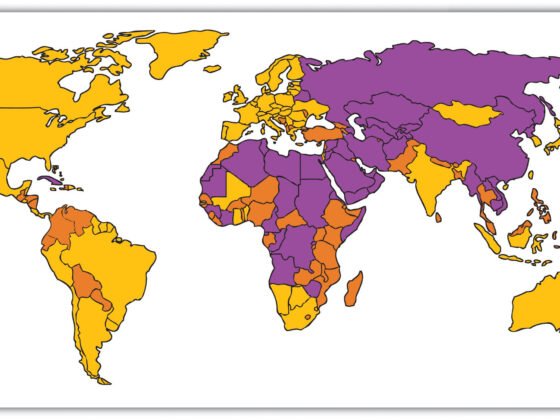What can post-communist Europe teach us about the global economy? A lot, as revealed by research presented at the recent annual ASEEES conference in Chicago. First, businesspeople who win elected office do govern differently though not necessarily in the ways they promise. David Szakonyi presented research on businesspeople candidates in Russia indicating that businesspeople candidates do indeed govern differently. Using a regression discontinuity research design with data from municipal and regional elections in Russia, he shows that businesspeople candidate who win office do not reduce the size of government. Instead, they tend to cut spending on some government agencies in favor of spending on things like roads and reduce corporate taxes while leaving spending on healthcare and education mostly the same. He concludes that despite their campaign promises, businesspeople tend to make government run, “for a business rather than like a business.”
Szakonyi’s research offers broader insight into the role of businesspeople in politics. The research he presented draws on his dissertation ("Renting Elected Office: Why Businesspeople Become Politicians in Russia"), which won the Robert C. Tucker and Stephen F. Cohen Dissertation Award from ASEEES and is the basis of his current book project. It includes an impressive original dataset beginning with 41,471 candidates to 83 regional legislatures from 2004-2012 from which 7,0000 businessperson candidates were matched with 11,000 firms using a Python algorithm to mine a database of firm registration; this was complemented with firm and sectoral level data from publicly available sources. The result is an unprecedented source of rich data that lends insight into why businesspeople run, how they govern, and their political influence.
Second, businesspeople can exploit global ties to their advantage. In her book project, When Big Business Goes Global, but Plays Local: Capital Mobility, Business and Politics in Eurasia, Inna Melnykovska explores a different facet of businesspeople’s influence on politics. She examines how Ukrainian oligarchs integrated into the global finance community and how their capital mobility affects their political and economic behavior which, in turn, affects the political and economic system that emerged in their home country. Her research highlights the abuse of financial globalization and the importance of checking those abuses. This finding is especially important given the aftermath of the 2008 and 2009 financial recession and ongoing question about corporate and bank regulation around the world.
Finally, Michael Rochlitz showed how businesspeople can exploit political connections by invoking an affiliation with the party of power. Rochlitz conducted an experiment in which different version of an email were sent to regional legislators asking for information about local programs to promote business investment. He varied both the company’s country or origin and whether there was an affiliation with United Russia. Those with United Russia ties proved to get more response. Interestingly, just the appearance of a possible affiliation with United Russia was enough to gain favoritism. Again, the post-communist context lends insight into business-state relations in an authoritarian setting.
All of these findings have important implications for understanding how businesspeople influence politics around the world: businesspeople run for office in many contexts, they often exploit international ties, and they invoke political affiliations to curry favor. Furthermore, the research presented at ASEEES offers us a more rigorous, systematic, and nuanced understanding of how and why businesspeople operate using informative case studies, original datasets, and novel experiments. The international community would be wise to pay attention.










